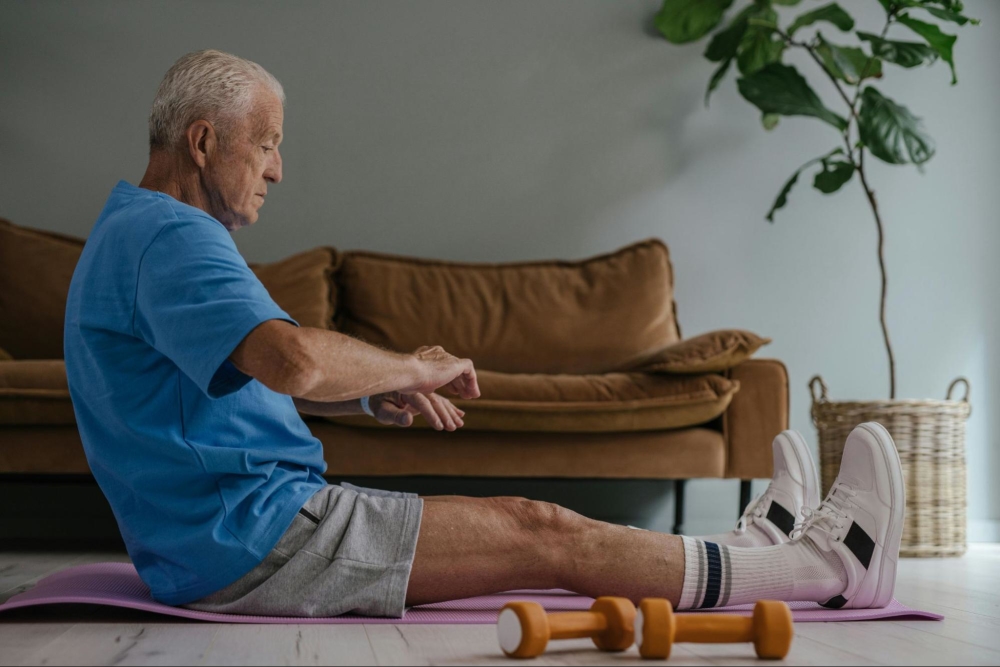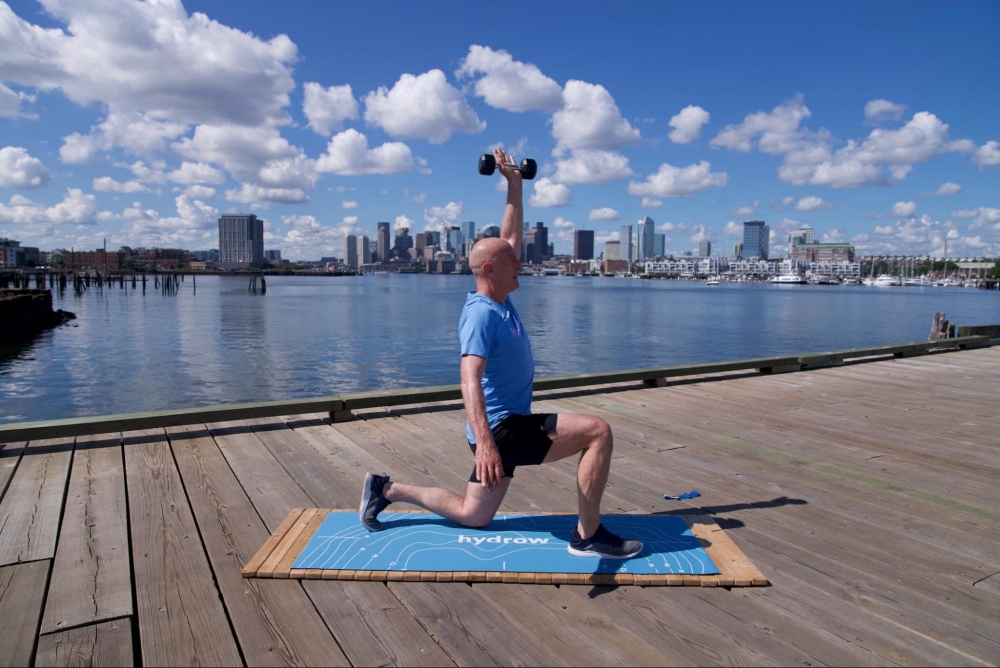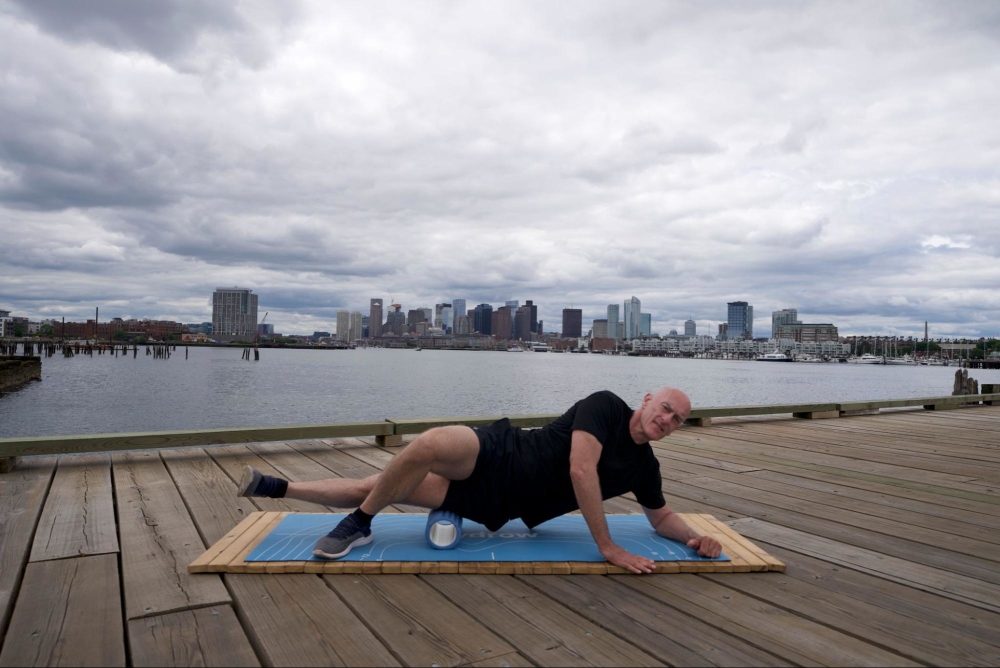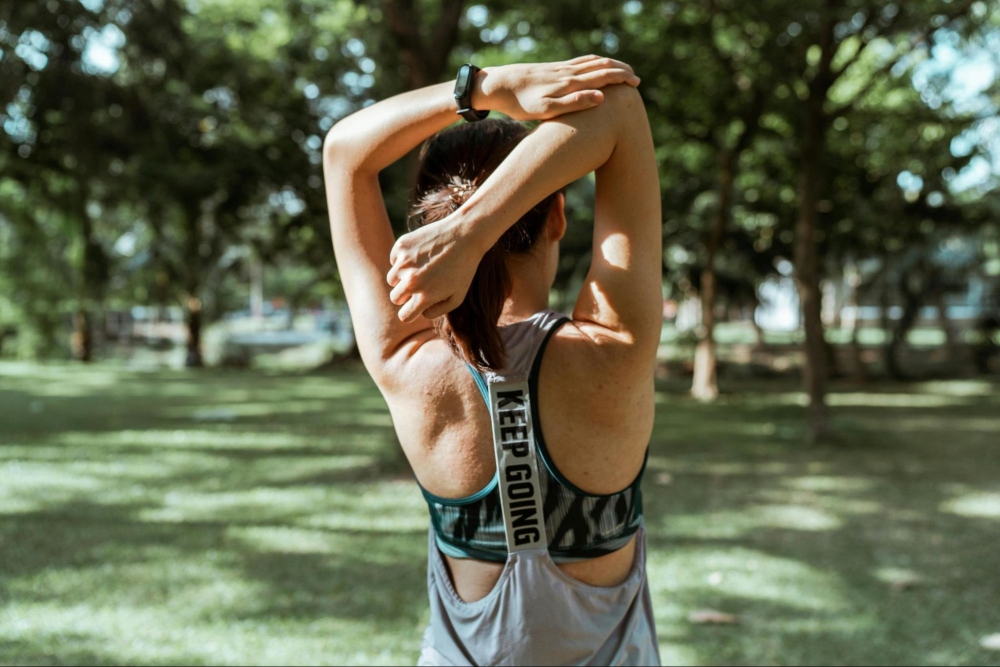How to Improve Your Mobility

Do you ever feel stiff after sitting for too long or find it challenging to bend, stretch, or move as freely as you like? Improving your mobility can make a world of difference, whether you’re looking to make daily activities easier, boost your athletic performance, or simply move without discomfort.
In this blog, we’ll cover everything you need to know about how to improve your mobility, including:
What is the difference between mobility and flexibility?
It’s common for people to think that mobility and flexibility are the same thing, but they do have key differences that are important to factor in when you’re choosing which types of exercises will help increase your mobility.
Mobility refers to the ability of a joint to move freely through its full range of motion, incorporating strength, coordination, and stability. Flexibility, on the other hand, specifically relates to the lengthening of muscles and tendons, allowing them to stretch without strain. While flexibility certainly contributes to mobility, good mobility also requires functional control and strength around the joints.
Improving mobility through a combination of stretching, strengthening, and functional movement practices is crucial for overall fitness, injury prevention, and enhanced performance in various physical activities. Good mobility helps maintain joint health, improves posture, and can make everyday movements easier and more efficient.

BLACK FRIDAY SALE
Holiday deals are already here. Because why wait?
Why mobility is important
Having good mobility is important because it allows your body to move efficiently and painlessly through a full range of motion. Consider these benefits of mobility:
Injury prevention: Better mobility helps reduce the risk of strains and sprains.
Enhanced performance: Improved range of motion can lead to better athletic performance and efficiency in movements.
Functional movement: Good mobility allows for smoother, more effective movements in daily activities.
Posture improvement: Good mobility can correct imbalances and promote better posture.
Age-related benefits: Maintaining mobility helps with independence and quality of life as we age.
How to increase your mobility
1. Incorporate a daily routine
Dynamic warm-ups: Start each workout with dynamic stretches, such as leg swings, arm circles, and torso twists, to prepare your joints.
Static stretching: After workouts, perform static stretches focusing on major muscle groups, holding each stretch for 15 to 30 seconds.
2. Focus on key areas
Hips: Include hip flexor stretches, pigeon pose, and butterfly stretches.
Thoracic spine: Use thoracic rotations and wall angels to improve upper-back mobility.
Ankles: Perform ankle circles and dorsiflexion stretches to increase ankle flexibility.
Shoulders: Try doorway stretches and shoulder dislocates with a resistance band.
3. Do functional movement
8 mobility exercises to add to your fitness routine
Incorporating these exercises regularly will help you maintain and improve your mobility over time:
Dynamic warm-ups: Start your routine with movements like arm circles, leg swings, and torso twists to warm up your joints.
Hip flexor stretch: Kneel on one knee with the other foot in front. Push your hips forward to stretch the hip flexor of the kneeling leg, while engaging the core.
Thoracic spine rotation: Sit or stand and twist your upper body to one side, holding the stretch to improve thoracic mobility.
Ankle dorsiflexion stretch: Stand with your feet hip-width apart, bend your knees and push them forward while keeping your heels down to improve ankle mobility.
Cobra pose: Lie on your stomach and gently push up through your hands, lifting your chest while keeping your pelvis on the ground to open up the spine and stretch the front of the body.
Squat to stand: Start in a standing position, with feet slightly wider than hips and feet turned out 5 degrees. Squat down, then extend your arms out in front for balance while maintaining a squat. This helps with hip and ankle mobility.
Child’s pose: Kneel and sit back on your heels, extending your arms forward to stretch your back and hips.
Lateral lunges: Step to the side into a lunge, alternating sides to improve hip and inner thigh mobility.
Tips for implementing mobility exercises into your fitness routine
If you’re looking to incorporate mobility into your daily fitness routine, follow these tips:
1. Try out strength training
Focus on improving your full range of motion with strength training exercises that challenge flexibility through their full range, such as deadlifts or overhead presses. Incorporating core-strengthening exercises such as planks, bridges, and rotational exercises will help support mobility in other areas as well.
2. Use foam rolling and massage
Use a foam roller or massage ball on tight muscles for self-myofascial release will help release tension and improve your blood flow.
3. Be consistent and progress gradually
Consistency is key for improvement, so try to incorporate mobility work into your daily routine, even if just for five to 10 minutes at least three to four times a week. Then, slowly increase the intensity and duration of your stretches and exercises over time to avoid injury.

Did You Know?
Over 90% of Hydrow members are still active one year later.
4. Listen to your body
Mobility work should not cause pain. If you feel sharp discomfort, ease off and reassess your technique. It’s also important to give your body time to recover between workouts, especially if you feel sore.
5. Focus on your breathing
Deep, controlled breaths can help release tension during stretches.
6. Stay hydrated and nourished
Proper nutrition and hydration support muscle function and recovery.
Common mobility training mistakes to avoid
Improving mobility is important, but there are some common mistakes people often make that can hinder progress or even lead to injury. Here are a few to watch out for:
1. Rushing the process
Mistake: Skipping warm-ups or not taking enough time to stretch.
Solution: Always include a thorough warm-up and give yourself enough time to stretch properly.
2. Neglecting breathing
Mistake: Holding your breath during stretches.
Solution: Focus on deep, controlled breaths to help relax your muscles and enhance the stretch.
3. Forcing movements
Mistake: Pushing too hard during stretches or exercises, which can lead to strain or injury.
Solution: Go to the edge of your comfort zone but avoid pain. Gradually increase your range of motion.
4. Inconsistent practice
Mistake: Only doing mobility work sporadically.
Solution: Incorporate mobility exercises into your daily routine to see consistent improvement.
5. Ignoring weaknesses
Mistake: Focusing only on areas that feel tight or painful while neglecting other areas.
Solution: Assess your entire body and work on mobility in all joints and muscle groups.
6. Overlooking strength training
Mistake: Focusing solely on flexibility without strengthening the muscles.
Solution: Combine mobility work with strength training to support and stabilize joints.
7. Lack of proper form
Mistake: Performing exercises with poor technique, which can lead to injury.
Solution: Focus on proper form and consider seeking guidance from a trainer if needed.
8. Not tracking progress
Mistake: Failing to monitor improvements or changes over time.
Solution: Keep a record of your mobility exercises and note any progress or areas needing more focus.
9. Skipping recovery
Mistake: Not allowing adequate recovery time for your muscles and joints.
Solution: Incorporate rest days and listen to your body when it needs a break.
10. Using static stretching only
Mistake: Relying solely on static stretches without including dynamic movements.
Solution: Combine dynamic stretches and movements with static stretches for a balanced approach.
By being mindful of these common mistakes, you can make your mobility training more effective and enjoyable! Remember this is “training” not “perfection.. So, be patient with your progress. You’ll experience benefits in all areas of your life and how you move in your life.
If you are looking for more mobility exercises to try out, be sure to check out Hydrow. Our extensive library of rowing machine, circuit training, yoga, and Pilates workouts also features a ton of mobility workouts, all led by world-class Athletes and filmed in gorgeous locations around the world.

Explore Hydrow's library of 5,000+ rowing, circuit training, yoga, Pilates, and mobility workouts.






